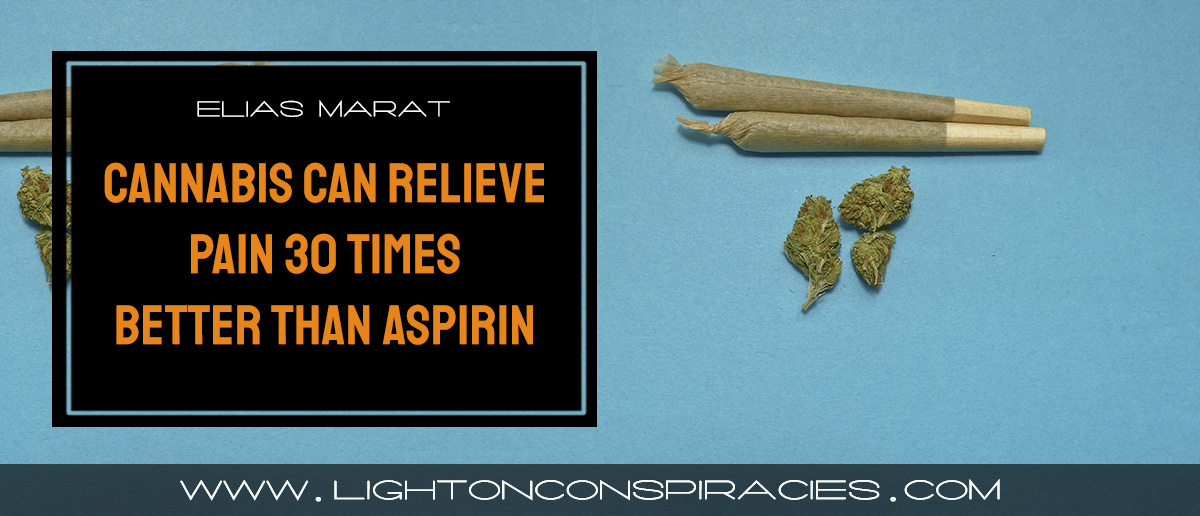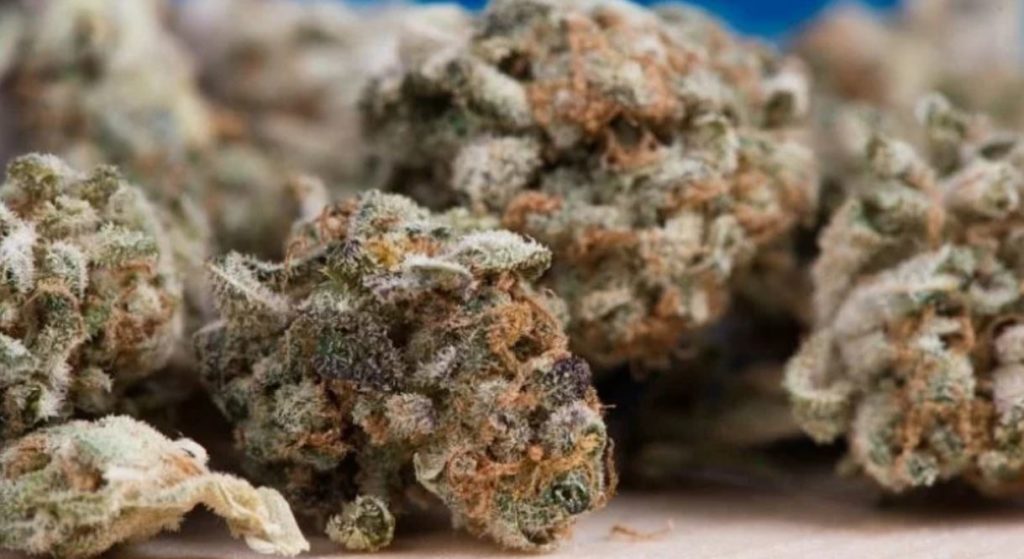By Elias Marat
Medical marijuana is fast gaining credibility as a valid pain relief treatment, with data from various studies attesting to the medical and health benefits of cannabis as a viable alternative to pharmaceutical drugs.
And now, researchers have uncovered a new reason why: the cannabis plant produces pain-relieving molecules that are 30 times more potent at reducing inflammation than aspirin.
What makes the discovery so groundbreaking is that it could carve a new path to natural pain relief medications that would save patients who suffer chronic pain from the risks of addiction associated with opioid-based pain killers.
The two cannflavins, known as “flavonoids,” were identified in 1985 when scientists proved that they had benefits which could fight inflammation at a gram-for-gram rate of about 30 times that of aspirin, or acetylsalicylic acid.
However, prohibitionist laws in Canada prevented further research into the potent anti-inflammatory qualities of the molecules.
But with Canada joining the growing bandwagon of countries legalizing cannabis for medical and recreational purposes, molecular and cellular biology Professors Tariq Akhtar and Steven Rothstein were able to resume an analysis into cannabis and how it produces cannflavins.
In a press release, Akhtar explained:
Our objective was to better understand how these molecules are made, which is a relatively straightforward exercise these days.
There are many sequenced genomes that are publicly available, including the genome of Cannabis sativa, which can be mined for information. If you know what you’re looking for, one can bring genes to life, so to speak, and piece together how molecules like cannflavins A and B are assembled.
Their full findings, which were published in the peer-reviewed journal Phytochemistry, offer an exciting opportunity to create new natural health products with equal or greater power than traditional synthetic or opioid-based pain relievers.
Akhtar continued:
There’s clearly a need to develop alternatives for relief of acute and chronic pain that go beyond opioids.
These molecules are non-psychoactive and they target the inflammation at the source, making them ideal painkillers.
University of Guelph researchers are the first to uncover how the cannabis plant creates important pain-relieving molecules that are 30 times more powerful at reducing inflammation than Aspirin https://t.co/v0icq4uxJh #UofG @UofGuelphNews
— University of Guelph (@uofg) July 23, 2019
The research comes amid the ongoing opioid crisis in North America which has largely been driven by large pharmaceutical firms such as Purdue Pharma, the company responsible for making the OxyContin narcotic pill, incentivizing or misleading doctors and patients about the dangerous and addictive nature of strong painkillers to boost company profits.
In recent years, drug overdose deaths have reached monstrous proportions, with 65,000 fatal drug overdoses taking place in 2017 alone. Many who abuse the pills have prolonged addictive fixations on opioids, with the hardest-hit age group ranging from 25 to 34 years old. Out of that age group, 12,325 died in 2017, among whom two-thirds were men.
Professor Rothstein, however, hopes that his team’s latest discovery can help make a powerful difference in people’s lives.
Being able to offer a new pain relief option is exciting, and we are proud that our work has the potential to become a new tool in the pain relief arsenal.













